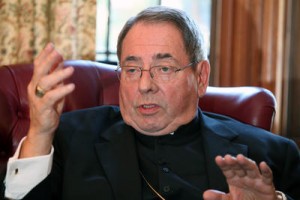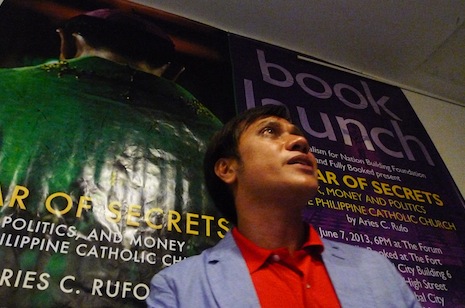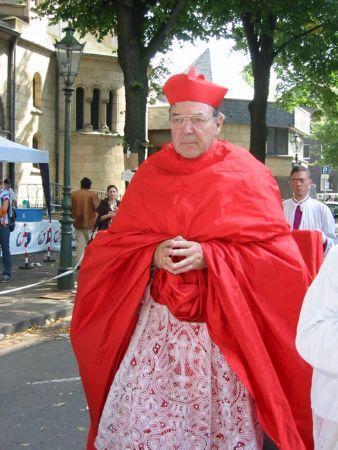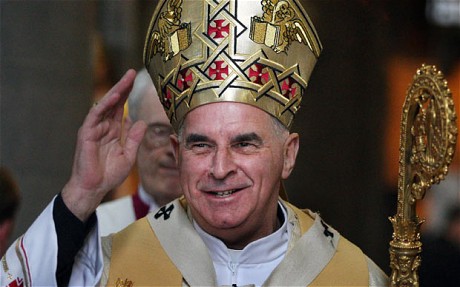By Michael Kelly
The death by suicide of Belfast-based Fr Matt Wallace has stunned many people. He is the third Irish priest to take his own life in the last 18 months. People are understandably shocked by the particular circumstances of each tragedy. But when the dust settles around the death of Fr Wallace, and his brother-priests and parishioners begin to pick up the pieces, it’s vital that some good can be brought out of this tragedy. There is a danger that when the shock dies down, we all get back to business as usual and there is no discussion about the wider questions.
For a start, we need to talk about the pressures facing priests in ministry today. Parishioners and bishops need to think seriously about expectations. Many priests are at breaking-point simply keeping the show on the road and there is little or no thought about realistic reform of parish life. While the number of priests serving in many parishes has fallen sharply in recent years, the expectations largely remain the same. In most dioceses, the (usually unsaid) advice is simply to keep one’s head down and get on with things. A culture of deference means that most priests won’t tell the bishop when they’re in trouble and need more support. There’s also a culture of not wanting to bother those in authority. Where problems arise, the solution is often short-term or little more than a sticking-plaster.
Priests are used to biting their lips. They often proceed without complaining. Interactions with their bishops rarely go beyond superficial chit-chat about football matches. There’s usually little room for real talk about pressures in ministry.
Loneliness
Many priests are lonely. Loneliness, of course, is part of the human condition. But do priests have someone to turn to? Do they have friends with whom they can experience the human need for intimacy and to know oneself to be loved?
Fr Thomas McGlynn put it well at Fr Wallace’s funeral when he observed that more priests face burnout and struggle with loneliness and the realisation “that we belong to everyone and to no one, even though we have the positive and affirming love of families, friends and parishioners”.
Fr McGlynn went on to point out that a “life of service in a bruised and wounded Church can be challenging and is both physically and mentally demanding. It is a hard truth and one that cannot be denied or dismissed and for some it has become intolerable or very difficult to bear”.
Some Catholics have tended to see their priests as Superman-like figures without the same feelings and emotional needs of others. It’s as if the grace of the Sacrament of Holy Orders overrides all human issues. But it doesn’t.
Too many priests are over-extending themselves. Catholics need to question the notions of priesthood that we have created. Is it really healthy that that the men who spend every waking moment running from pillar to post attending meetings, functions and calling bingo numbers are the people we admire as model priests?
Are we forgetting that unless a priest is himself nourished in body and soul, then he will have nothing to give? Sadly, we can all think of examples of priests who appear bitter and resentful, or are simply weary and running on empty having long-since spent themselves in the service of the Lord with little else to give other than a round of constant busyness. How many Irish Catholics are unwilling to approach their parish priest about anything because they don’t want to overburden a man whose life is marked by an almost frantic desire to keep everything going? At the same time, there are many parishioners who keep a vigil-like eye on their priests: “He has a nice sun tan” or “he likes his golf” which are generally offered as stinging critiques rather than casual comments.
Many priests are also over-burdened by expectations of nominal Catholics who no longer attend Mass or practise their faith. While not regular Massgoers, most Catholics in Ireland still want their children baptised, want to get married in the Catholic Church and want a Catholic funeral. Most of these people have little or no awareness of the challenges facing the local priest since they rarely – if ever – darken the door of the church. Yet, the sense of expectation that a priest will be available at a moment’s notice is palpable. Many parishes are also under financial pressure since many of those who avail of the services on an infrequent basis don’t contribute to the parish.
Criticism
We need to be realistic and name the fact that the last number of years have been very demanding and demoralising on priests. Many are subject to constant carping and criticism: there are not enough Masses, there is not enough home visits, there needs to be something more for young people…and it goes on.
Since Vatican II we have increasingly talked about co-responsibility between people and priests for the future of the Church. While it’s true that some priests are resistant to this, too many parishioners are also content to be passive. They look on at the increasing workload of priests and the declining numbers as if they are mere observers rather than people empowered by Baptism to take responsibility for the Church.
The issue of clerical sexual abuse and the disastrous handling of allegations by bishops and religious superiors has also had a devastating effect on priests. Many feel subjects of public suspicion and a sense of being sitting ducks vulnerable to false allegations and rumours. Research shows that the general public vastly overestimates the number of priests who have abused children. This is very wearing. Many priests feel demoralised by the fact that they were not responsible for any mishandling of abuse, but live now in the knowledge that bishops are so keen to be seen as squeaky clean on the issue, the last place they will get support from in dealing with a false allegation is their bishop.
Ridicule
Priests have also become constant subjects of ridicule for comedians and commentators. It is taken for granted in many so-called ‘enlightened’ circles that priestly celibacy automatically produces weirdoes. Earlier this year, best-selling author Marian Keyes proposed a “National Throw A Stone At A Priest Day”. Can you imagine the absolutely correct furore if, say for example, she used ‘Jew’ or ‘gay’ instead of priest?
Ms Keyes then posted a message to social networking site Twitter stating: “no matter how ‘nice’ a priest is, no matter how many raffles he runs, he is still a foot soldier for a f*cked-up misogynistic regime”.
And so it goes on.
Many priests no longer have a regular day off each week. Or, if they do have a day off, they have to scramble around to get cover so they can get away from the parish. And yet, there seems little cognisance of this from parishioners. Priests are expected to share in the joys and sorrows of the parish community, which they do often with heroic fortitude. But this also takes its toll. A priest told me recently about a devastating death by suicide of a young man in his parish. He journeyed with the family through the days of the wake and funeral trying desperately to offer words of comfort and consolation without wanting to give the impression in his homily that suicide is ever a solution. Three hours after the funeral Mass, attended by large numbers of bewildered young people, he was celebrating the wedding Mass of a young couple of the happiest day of their lives. At both of those Masses, the priest had to share in the emotion of the people there: from stark devastation to hope-filled joy.
When it comes to the running of schools, priests are sometimes called upon to intervene in serious human resources issues that would test the competence of even experienced lawyers. And if the priest makes a wrong call in good faith, it will all blow up in his face.
Pain
Many priests also acutely feel the pain of their parishioners in the midst of the recession. It comes as a surprise to many Catholics that priests are not well paid, many live from month-to-month grateful for the odd donation they receive to tide them over.
Priests need support. For some this will take the form of structured support such as pastoral reflection groups while others will prefer informal support by spending time with friends or family. Bishops need to ensure that priests have the space that they need to recharge their batteries. Priests also need to be aware that there is support that they can access when they feel under pressure. Parishioners will also need to be aware that priests, largely due to falling numbers and an aging clergy cannot be as present as they once were.
Complete Article HERE!




